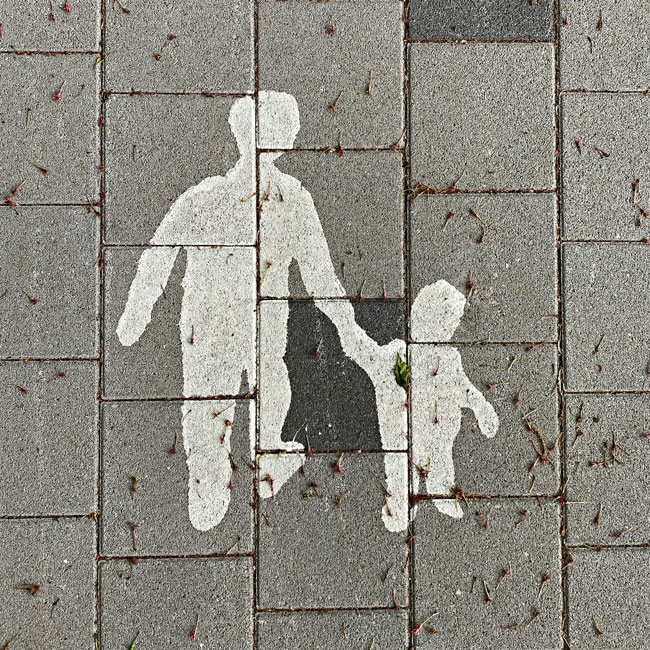Maggie Beer: Good food can drive better aged care

Maggie Beer: Good food can drive better aged care
Opinion + AnalysisHealth + Wellbeing
BY Matthew Beard The Ethics Centre 6 NOV 2015
Cooking guru Maggie Beer has turned her culinary prowess to the considerable task of dishing up better food for the elderly, whether they’re living at home or in aged care. With her team at the Maggie Beer Foundation, she’s coordinating a movement that will bring the healing power of food to those who need it.
“We want to give them the energy to create mobility… So many people in the industry are working so hard often without the support, without the newest thinking or ideas, without the specialised training and without being valued,” Beer explains.
Loneliness and hopelessness can be a challenge to good nutrition. The elderly – especially the bereaved – can struggle to rationalise the effort and expense of cooking for themselves. Not only is it demanding on time and energy, it can be a reminder of loss.
It’s not surprising frozen meals and food delivery services become attractive. But this brings us back to nutrition. “So many of them are ordering Lite n’ Easy!” Beer bemoans. “Nutritionally, it’s the exact opposite of what they need”, which is, among other things, full-fat meals high in protein and calcium.
Better food and better food communities represent a solution. Taking a meal is a traditionally communal enterprise that nourishes the body and the soul.
“Loneliness is a huge thing so we’re trying to bring people together – even once a month – to share a meal and be part of a wider community,” says Beer.
Passion also plays a part. Beer is in the business of cultural change and she wants a passion for food to be part of the solution.
She hopes for “a kitchen culture [in aged care] where chefs and kitchenhands are proud of the food that’s being produced.” This pride in creating beautiful food trickles outward. It creates more energetic residents, but also reveals to staff the therapeutic power of pleasure.
“It makes them [the staff] proud and celebrates those providing the food,” she explains.
Beer is battling against those who allow the elderly merely to exist rather than live a full, enriching life. So is the problem with food in aged care a symptom of the broader social malady – our collective attitudes to ageing?
“It’s endemic”, says Beer. “We need to find those industry leaders who don’t have the preconceived notion that the elderly can be cared for without soul… I want to create a sense of outrage about [elderly people] who are merely existing.”
Cultural change is important to improve conditions for those in aged care right now. Beer is less concerned about the next generation of elderly.
“Baby Boomers have been making changes all their life – they won’t accept the status quo. But people need help and support now. They’ve lived hard lives and not complained. Now they need to feel valued.”
Beer is no slouch on the pragmatics of cultural change. Her strategy could have been pulled straight from Aristotle who believed ethical role models were necessary for good education. Beer is looking for examples of industry best practice to serve as benchmarks for others.
Using these benchmarks successfully will require leaders who are open to improvement – and a recommitment to the industry values that inform aged care.
“If you have a leader who knows how much good food can give to the resident pleasure and wellbeing, [it creates] a totally different attitude to those who see it as a means of keeping people alive… By finding the great examples, celebrating them and using them as benchmarks, there is so much we can do,” she says.
There are a number of such leaders around. Off the cuff Beer lists a range of projects she knows of or is involved with. From architecture to linguistics and gardening, progress is being made.
It isn’t just about changing the system, but each individual’s attitudes to include the elderly as part of the community. In that spirit, I ask Beer for three dishes every grandchild should be able to cook for their grandparents.
“It should be nutritious, but with lots of flavour and nostalgia”, she says. “Shepherd’s pie, a chicken soup with lots of vegies, and bread-and-butter pudding full of eggs, custard, and cream.”
The German philosopher Ludwig Feuerbach quipped, “philosophers have broken their heads over the question of the bond between body and soul. Now we know… eating and drinking hold together body and soul, that the searched-for bond is nutrition.”
He seems to have found his muse.
Ethics in your inbox.
Get the latest inspiration, intelligence, events & more.
By signing up you agree to our privacy policy
You might be interested in…
Opinion + Analysis
Health + Wellbeing
How to live a good life
Opinion + Analysis
Health + Wellbeing, Relationships
The truths COVID revealed about consumerism
Opinion + Analysis
Health + Wellbeing, Relationships
LGBT…Z? The limits of ‘inclusiveness’ in the alphabet rainbow
Opinion + Analysis
Health + Wellbeing, Relationships
To live well, make peace with death
BY Matthew Beard
Matt is a moral philosopher with a background in applied and military ethics. In 2016, Matt won the Australasian Association of Philosophy prize for media engagement. Formerly a fellow at The Ethics Centre, Matt is currently host on ABC’s Short & Curly podcast and the Vincent Fairfax Fellowship Program Director.
BY The Ethics Centre
The Ethics Centre is a not-for-profit organisation developing innovative programs, services and experiences, designed to bring ethics to the centre of professional and personal life.
Nurses and naked photos

Nurses and naked photos
Opinion + AnalysisPolitics + Human Rights
BY Matthew Beard The Ethics Centre 6 NOV 2015
A Sydney nurse took an explicit photo of a schoolteacher who was under anaesthetic and awaiting surgery.
The teacher said, “I am a larger woman. To me, it’s obvious she took it to make fun of fat people.” The teacher is campaigning for legal reform to protect other patients from suffering in similar ways and to see the nurse punished for a criminal offence.
Obviously what this nurse did was wrong. It objectified another human being, treating her as an object of ridicule and subject to the whimsical mood of the nurse. What’s more, the nurse violated the contract of trust that underpins the relationship between patients and the medical profession.
By photographing her naked the nurse also subjected the teacher to deep and ongoing humiliation about her body and usually private sexual organs. The photograph also creates the possibility for further exploitation, distribution, and humiliation.
The teacher said, “I felt like my world was exploding. I felt I was in great peril that this photo was going to destroy my life, my career and that my son would find out.” It seems the psychological ramifications have been severe.
The act was intrinsically wrong. It violated notions of trust, the inherent dignity with which people ought to be treated, and undermined the values that inform the profession of nursing.
But independently of the consequences, the act was intrinsically wrong. It violated notions of trust, the inherent dignity with which people ought to be treated, and undermined the values that inform the profession of nursing.
It will be distressing to learn that there is currently no law in NSW forbidding behaviour like this. A loophole in the law means that because the photo was not motivated by sexual deviancy, but by the desire to make fun of the patient, no legal recourse was available. It seems reasonable to call for legal reform. This is precisely what Fiona McLay, the teacher’s lawyer, is doing.
The act was incontrovertibly unethical regardless of its legal standing and yet this nurse still felt empowered to take the photo. And worse, the nurse is still practising without restrictions or supervision, having apologised and found to have shown “the appropriate level of contrition”.
Despite all this, the instinct to turn to law as a way to amend or prevent unethical behaviour is misguided. What is required is for the nursing profession to demonstrate this behaviour will not be tolerated and is directly against the values nursing stands for.
Making such photographs illegal will do little to return trust – patients will still be vulnerable before surgery occurs and nurses will still have the opportunity to take such photos. Making photographs illegal will do little more than allow wrongdoers to be sent to prison.
Law is a clumsy instrument for enforcing ethical behaviour.
For us to trust nurses in spite of a story like this the profession must uniformly state their disapproval for the conduct and demonstrate willingness to enforce its own ethical standards. Law is a clumsy instrument for enforcing ethical behaviour. Re-committing as a profession and as individual professionals to the core values of the field – trust, respect for persons and patient care – is much more likely to avoid instances like this in the future.
There is no reason to excuse the nurse’s behaviour in this case. However, it is worth understanding this incident occurred in a context where crass jokes may well be the norm.
Jokes help us get through the day and although this one went seriously awry we should recognise the context in which it was made. Nursing is a tough field. It’s demanding on the body and the mind, and sometimes errors of judgement – including insensitive, invasive jokes – are a possibility.
As the old saying goes, sometimes you have to laugh to keep from crying.
Humour is a matter of taste, and much relies on pushing against ordinary modes of thinking – including moral norms. Of late there has been heated debate regarding the place and value of racist and sexist humour in comedy. Regardless of the view we take on that particular subject, we should agree that any form of humour that trades off the humiliation of a particular individual, or is done in ways that can have lasting and severe consequences for a person’s wellbeing will be unethical – even if funny to some.
Ethics in your inbox.
Get the latest inspiration, intelligence, events & more.
By signing up you agree to our privacy policy
You might be interested in…
Opinion + Analysis
Politics + Human Rights, Society + Culture
Making sense of our moral politics
Big thinker
Politics + Human Rights
Big Thinker: Peter Singer
Explainer
Society + Culture, Politics + Human Rights
Thought experiment: The original position
Opinion + Analysis
Politics + Human Rights








